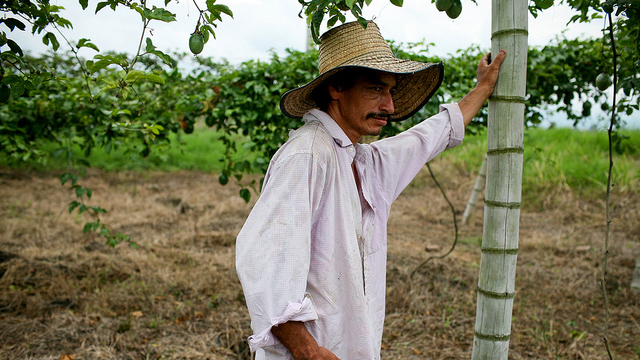Rural finance is emerging as one of Colombia’s most pressing development challenges as the country moves toward a peace agreement to end a 50 year-long civil war and looks to provide for the impoverished rural areas, considered by many to be one of the causes of the conflict.
Helping small farmers gain access to credit and protect themselves against risk is becoming a priority for the public and private sector alike.
The World Bank Group and Bancamia, a microfinance institution, in November organized a workshop to discuss and promote agri-insurance services for small farmers.
Agri-insurance can be an essential tool to help small farmers manage risk and protect them against extreme weather risks, for example, but it is largely unknown in Colombia.
The workshop brought together private insurance companies, government institutions, banks, donors and experts to better understand issues facing Colombian farmers and draw on lessons from international experience, including from the World Bank Group’s Global Index Insurance Facility (GIIF), which seeks to expand the use of index insurance as a risk management tool in agriculture, food security and disaster risk reduction in Africa, Latin America and Asia.
Agri-insurance will be critical to the economic survival of Bancamia’s clients and the sustainability of its portfolio, according to Maria Mercedes Gomez, President of Bancamia.
About 79% of Bancamia’s rural clients live in areas that could be impacted by severe weather events.
Agri-insurance products can allow microfinance institutions, like Bancamia, to protect and expand relations with existing clients, provide additional finance to help them restart their activities in the event of loss and protect the quality of their overall loan portfolio.
Workshop participants discussed the need for the Colombian government to enable private insurance companies to innovate and diversify their offerings to ensure solutions are simple, timely, cost-effective and meet farmers’ needs.

